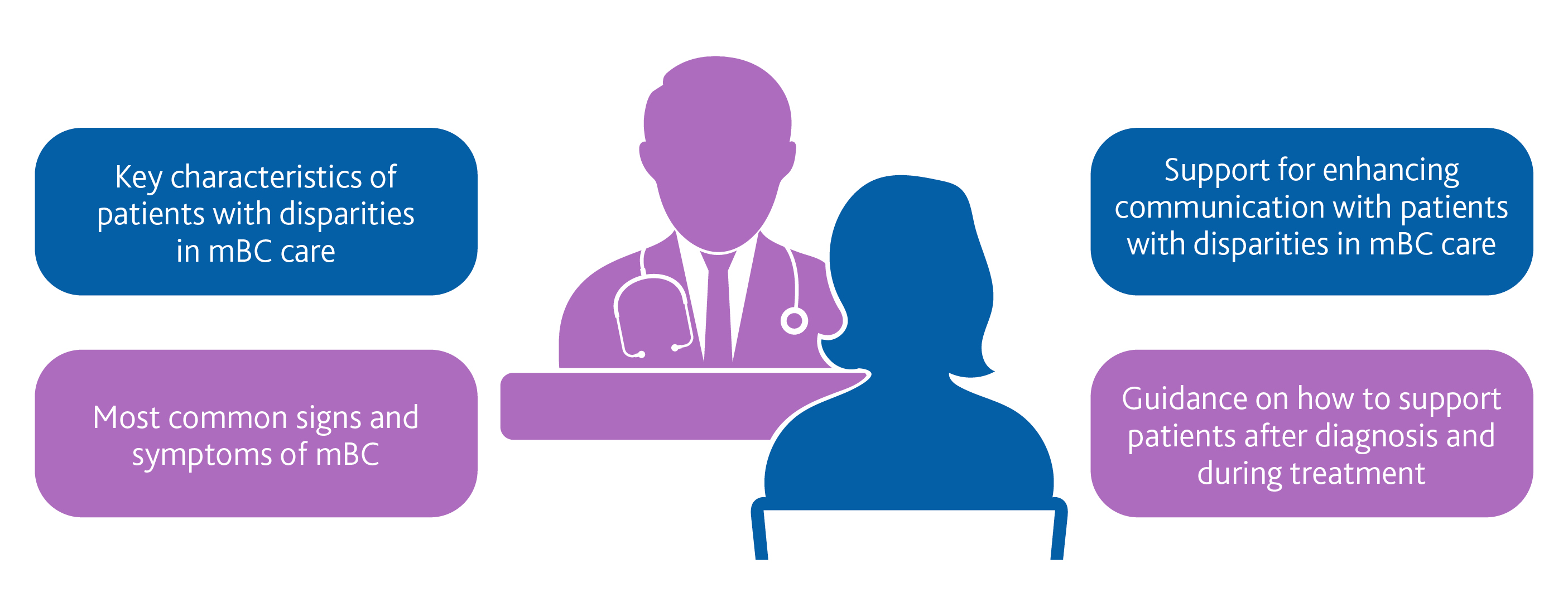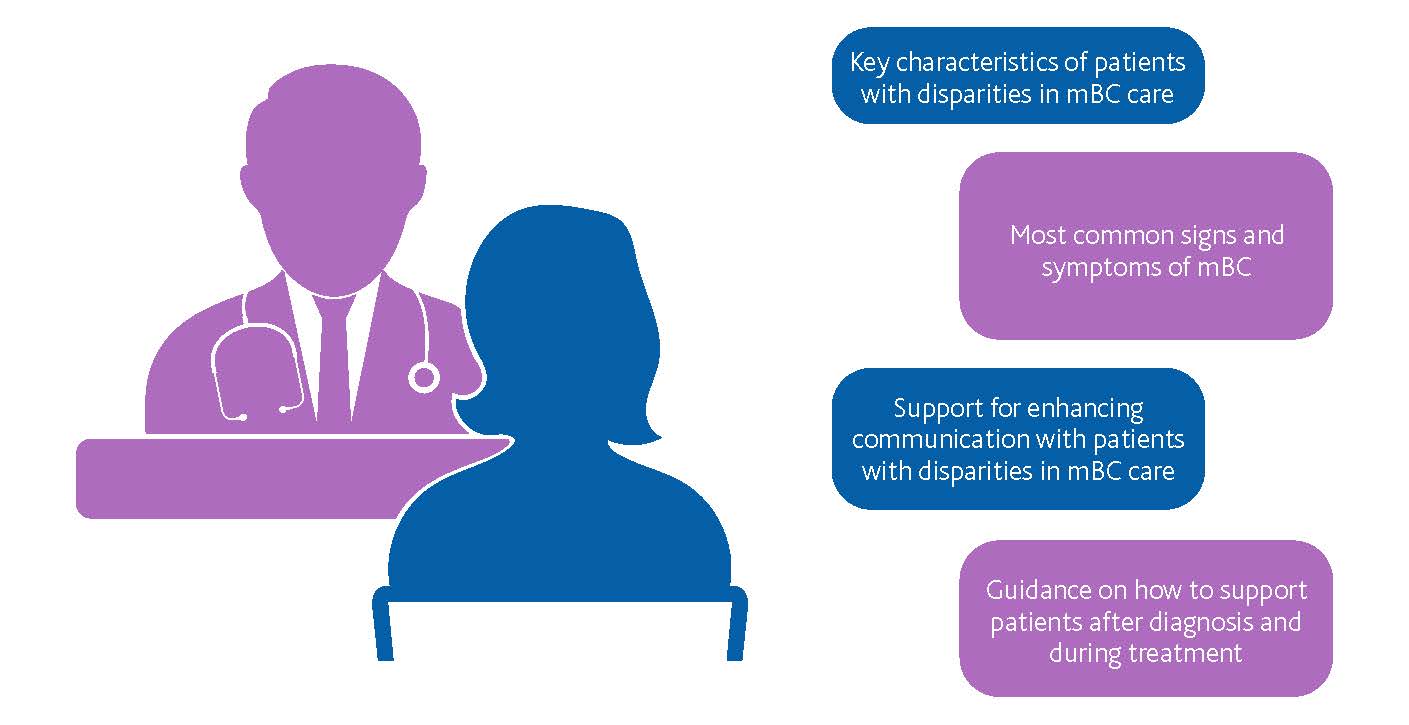
Globally, not all patients with metastatic breast cancer (mBC) have equal access to care and treatments.1 It is important to identify these patients with disparities in mBC care and provide them additional support during their diagnosis and treatment. Patients who experience mBC symptoms often contact a healthcare professional who does not specialise in breast cancer before an oncology specialist.2
With the help of an expert Coalition Task Force formed of specialist oncologists and mBC patient advocates, Pfizer Oncology developed a toolkit for healthcare professionals who do not specialise in breast cancer to support them in providing equal access to care for all patients with mBC.
Explore further below to learn about how to identify, communicate and improve care for all patients with mBC:
Module 1: Identifying patients with disparities in care and diagnosing metastatic breast cancer
Outlines the key characteristics of patients with disparities in mBC care, in order to support healthcare professionals in identifying these patients during their consultations.
Contains information on the most common signs and symptoms of mBC, to help with accurate and timely diagnosis.
Module 2: Enhancing communication with patients with disparities in mBC care
Provides guidance for healthcare professionals on how to enhance their communication with patients with disparities in mBC care, which can be challenging, as these patients may be less likely to recognise or communicate their symptoms.
Module 3: Optimising the treatment pathway for patients with disparities in mBC care
Includes suggestions for healthcare professionals on how to enhance the support and care they provide for their patients after diagnosis of mBC and during treatment.
Describes the treatment pathway for patients with mBC and information on the available treatment options for mBC.

Download
1Vrdoljak E, Gligorov J, Wierinck L, et al. Addressing disparities and challenges in underserved patient populations with metastatic breast cancer in Europe. Breast. Feb 2021;55:79-90. doi:10.1016/j.breast.2020.12.005
2Klabunde CN, Ambs A, Keating NL, et al. The role of primary care physicians in cancer care. J Gen Intern Med. Sep 2009;24(9):1029-36. doi:10.1007/s11606-009-1058-x